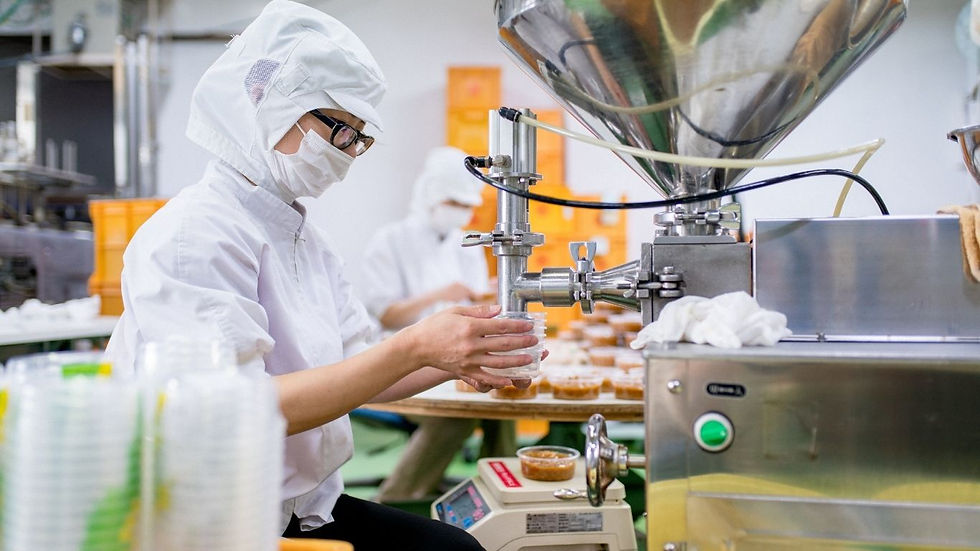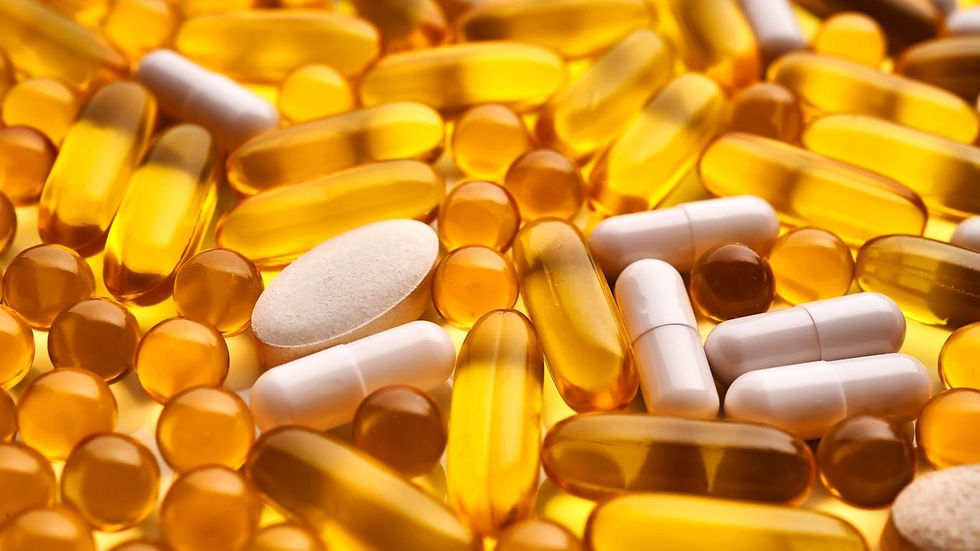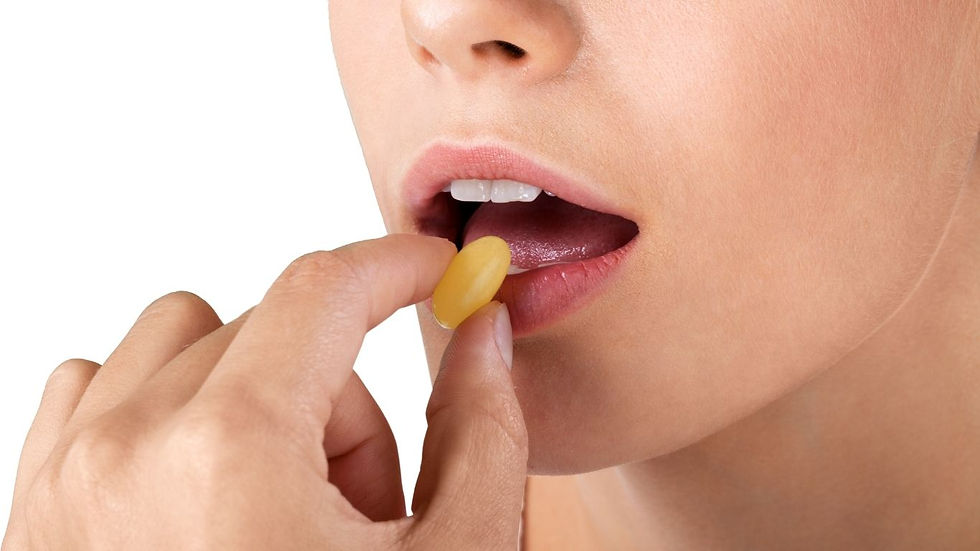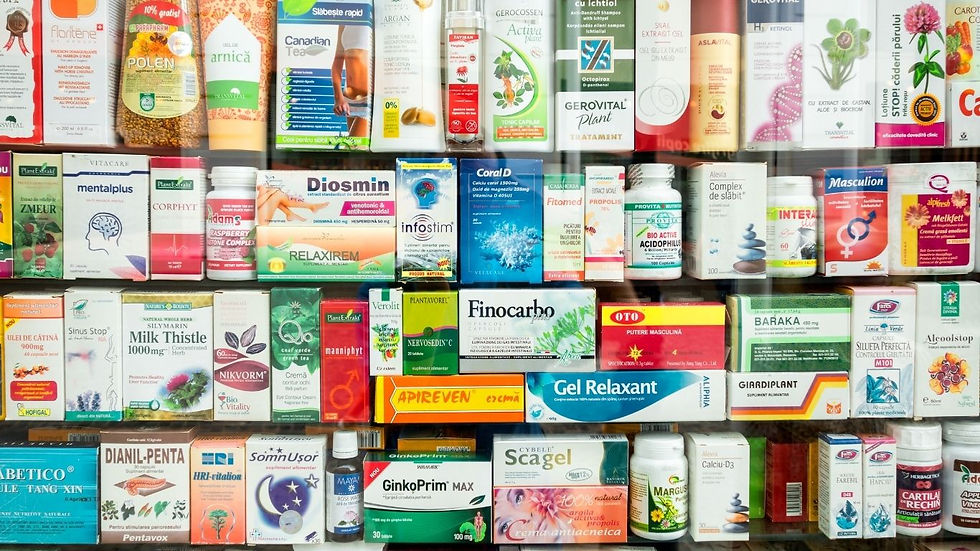The health boom has brought increased attention to Japanese supplements! What is the appeal?
Quality: High quality produced by carefully selected ingredients and unique technology
Consumer survey: Satisfaction and trust of Japanese supplements
Expert's perspective: Doctors and pharmacists talk about how to use supplements
Comparison with the global market: Strengths and challenges of Japanese supplements
Summary: The future of Japanese supplements that contribute to extending healthy lifespan

The health boom has brought increased attention to Japanese supplements! What is the appeal?
In recent years, the supplement market has expanded rapidly worldwide along with changes in social conditions, people's values, and growing awareness of health. In Japan, the market size will exceed 1 trillion yen in 2023 , and is expected to continue to grow. In particular, Japanese supplements remain highly trusted among consumers who value safety and high quality . Japan has built a world-class supplement production system, including strict quality control standards, unique technological capabilities, and a functional food labeling system. Against this background, Japanese supplements have earned high praise not only in Japan but also overseas. In this article, we will explain in detail the safety, quality, and effectiveness of Japanese supplements, including the latest data and expert opinions. In addition, through the results of consumer surveys and comparisons with the global market, we will clarify the appeal and challenges of Japanese supplements and explore future prospects.

Safety: World-class quality control and strict standards
The greatest attraction of Japanese supplements is their safety . In Japan, GMP (Good Manufacturing Practice), a strict quality control standard at the pharmaceutical level, is also applied to supplement manufacturing, and products are manufactured under strict hygiene control. In addition, there are extensive certification systems by third-party organizations such as the Japan Health and Nutrition Food Association (JHFA), and products that have acquired a certification mark give consumers peace of mind as they are highly safe products that have cleared strict screening standards. In addition, Japan is required to display the ingredients and allergens of supplements in detail under the Food Labeling Act. In recent years, emphasis has also been placed on traceability of ingredients and transparency of manufacturing processes to ensure consumer safety and peace of mind.
In response to the health damage caused by Kobayashi Pharmaceutical's health foods that came to light in May 2024, the Ministry of Health, Labor and Welfare has begun a review of the functional food labeling system. This is expected to further tighten safety inspections of functional food products and strengthen consumer safety assurance.
Expert opinion
Chikako Uneyama of the National Institute of Health Sciences, an expert on food safety, said in an NHK interview about the proposed review, "Until now, I think the government's stance has been that the contents and safety of foods with functional claims are the responsibility of the business operator, and that it just receives notifications but is not responsible, but this time the government is being asked to intervene to some extent to check and take responsibility."

Quality: High quality produced by carefully selected ingredients and unique technology
The high quality of Japanese supplements is supported by a thorough commitment to the use of raw materials and unique technological capabilities that have been cultivated over many years.
Commitment to ingredients
In order to carefully select high-quality ingredients, Japanese supplement manufacturers visit production sites both in Japan and overseas to check the cultivation methods and quality control systems. In particular, many manufacturers are particular about using domestic ingredients, and do not compromise on quality by using organic cultivation that minimizes the use of pesticides and chemical fertilizers, or ingredients grown using unique cultivation methods. For example, Nichirei, famous for its acerola drink, uses 100% domestically grown organic acerola, and is supported by many consumers due to its high quality. In addition, AFC-HD AMS Life Science uses its own technology to handle various ingredients and develop high-purity supplements.
Unique technical capabilities
Japanese supplement manufacturers create high-quality products by utilizing their unique technological capabilities, which have been cultivated through years of research and development. They utilize world-class technologies, such as ingredient extraction and purification techniques and formulation techniques to increase absorption rates. In addition, research and development of new functional ingredients, such as probiotics that improve the intestinal environment and collagen peptides that are expected to have beauty effects, is also actively conducted. The results of these researches have led to the development of new supplements, meeting the diverse needs of consumers.
Functional Food Labeling System
The functional food labeling system, introduced in 2015, has contributed greatly to improving the quality of supplements. Under this system, businesses can display functionality based on scientific evidence, but the content of such claims is subject to strict review by the Consumer Affairs Agency. This system has enabled consumers to obtain reliable information based on scientific evidence and choose supplements that suit them.

Effects: Evidence-based proven effects and how to choose
Another major feature of Japanese supplements is that they are expected to have scientifically-based effects . In particular, products sold under the Functional Food Labeling System have undergone rigorous screening by the Consumer Affairs Agency and are permitted to display that they can be expected to have specific health benefits.
Main Effects and Ingredients
There are many supplements that promise various effects. For example, the effects of the following ingredients are scientifically backed by clinical trials and research data.
Fatigue recovery : B vitamins, coenzyme Q10, imidazole dipeptide, etc.
Improving immunity : Lactic acid bacteria, R-1 lactic acid bacteria, LPS (lipopolysaccharide), etc.
Skin-beautifying effects : Vitamin C, collagen, hyaluronic acid, etc.
Diet : Garcinia extract, Gymnema sylvestre extract, alpha-lipoic acid, etc.
Sleep improvement : glycine, theanine, rafuma leaf extract, etc.
Eye fatigue : lutein, zeaxanthin, astaxanthin, etc.
Joint pain : Glucosamine, chondroitin, MSM (methylsulfonylmethane), etc.
How to Choose Supplements
To choose an effective supplement, here are some things to keep in mind:
Clarify your purpose : Clarify your purpose and what effect you are hoping to achieve, then choose a supplement that contains the appropriate ingredients.
Choose a reliable manufacturer : Choose products from reliable manufacturers, such as manufacturers that are GMP certified or sell functional foods.
Check the ingredient label : Check the ingredients and their amounts to avoid overdosing.
Check safety information : Be sure to check the safety information, including information on allergens and drug interactions.
Consult a specialist : If you have a chronic illness or are pregnant or breastfeeding, be sure to consult with your doctor or pharmacist before choosing a supplement.
important point
Supplements are dietary supplements and not medicines. Effects vary from person to person and may not be effective for everyone. In addition, excessive intake may cause health problems, so it is important to use them correctly by following the usage and dosage instructions.

Consumer survey: Satisfaction and trust of Japanese supplements
Various surveys are being conducted to understand consumer awareness and usage of Japanese supplements. Here, we will introduce the current state of affairs revealed by the latest survey data.
Supplement usage rate
According to the Basic Survey on National Life conducted by the Ministry of Health, Labor and Welfare in 2019, the percentage of people taking health foods such as supplements is **21.7% of men and 28.3% of women**. By age, the highest usage rate is among men in their 60s and women in their 50s, indicating that usage is spreading among age groups with increasing interest in maintaining health. In today's world of widespread stress and heightened health awareness, the intake of supplements among people in their 20s and above is also on the rise, and the supplement market is expected to expand further.
Satisfaction and reliability
According to a survey conducted by a private company , about 80% of users of Japanese supplements are satisfied with their effectiveness, and over 90% said they would like to continue using them in the future. In addition, the safety and quality of Japanese supplements are highly trusted, and many people use them with confidence.
Decisive factor for purchase
When choosing supplements, the most important factors cited are " safety ," " quality ," and " effectiveness ." In particular, being made in Japan and having GMP certification appear to be important indicators for choosing a trustworthy product. When asked about sources of information about supplements, the top three cited sources were " the Internet ," " family and friends ," and " television ," but since the Internet is overflowing with a variety of information, it is important to identify reliable sources.
The results of the consumer survey show that Japanese supplements are highly regarded in terms of safety, quality, and effectiveness. We look forward to the continued development of high-quality products that meet consumer needs.
Expert's Perspective: Doctors' Guide to Using Supplements
While supplements can help maintain your health if used correctly, they can also cause health problems if used incorrectly. Here, we will explain the correct way to use supplements from the perspective of a medical expert.
Supplements are not a panacea
Yutaka Morita, a doctor and medical journalist, warns, "Supplements are merely dietary supplements, and you cannot expect the same therapeutic effects as medicines. We must not forget that improving basic lifestyle habits, such as a balanced diet and moderate exercise, is the basis for maintaining health." Kayoko Adachi, a pharmacist and president of the Japan Clinical Nutrition Society, also says, "Supplements are an effective way to make up for nutrients that tend to be lacking and to support specific health issues, but they are not a panacea. It is important to choose the appropriate type and amount to suit your constitution and health condition."
Caution is required when using with medicines
Some supplements have been reported to interact with medicines. For example, if a person taking anticoagulants such as warfarin takes a supplement that contains a lot of vitamin K, the effectiveness of the medicine may be weakened. When taking supplements, it is important to be careful about interactions with medicines you are currently taking, and if you have any concerns, it is important to consult a doctor or pharmacist.
Be careful not to overdose
It is important to take supplements correctly by following the directions and dosage. Excessive intake can not only cause digestive symptoms such as nausea and diarrhea, but can also put strain on the liver and kidneys. In particular, fat-soluble vitamins such as vitamin A and vitamin D tend to accumulate in the body, so care must be taken not to take too much.
Supplements are a useful tool for maintaining health if used correctly, but they are not a panacea. With the advice of an expert, choose the appropriate supplement according to your constitution and health condition, and combine it with a balanced diet and moderate exercise to aim for more effective health promotion.

Comparison with the global market: Strengths and challenges of Japanese supplements
Japanese supplements have earned a high reputation in the global market for their safety and high quality. However, there are several challenges to entering overseas markets.
Global supplement market size and trends
The global supplement market is expanding year by year due to rising health awareness and an aging population. According to a survey by Fortune Business Insights, the market size is expected to reach 146.14 billion US dollars (approximately 20.385 trillion yen) in 2023 and 250.81 billion US dollars (approximately 37.6215 trillion yen) in 2032. (Converted at an exchange rate of 139.49 yen to the dollar as of June 8, 2023. The exchange rate for 2032 is 150 yen to the dollar, which is a forecast value, and it cannot be denied that the actual exchange rate may be 200 yen to the dollar or more.)
In particular, in large markets such as the United States and China, various supplements such as vitamins, minerals, herbs, probiotics, etc. are gaining popularity. In recent years, new trends have also emerged, such as personalized supplements and environmentally friendly sustainable supplements.
Export status of Japanese supplements
Japanese supplements are exported mainly to Asia, and are especially popular in China, Hong Kong, and Taiwan. However, exports only account for a small percentage of the total, and expanding their share in overseas markets is a future challenge. In addition, regulations regarding supplements vary from country to country, and it is necessary to comply with the regulations of each country when entering overseas markets. For example, in the United States, there are strict regulations by the FDA (Food and Drug Administration), and standards that differ from those in Japan are set for functional claims and ingredient amounts. In China, the "Health Food Registration and Filing Management Measures" that came into effect in 2022 have tightened the registration procedures for supplements. This has made it more difficult for Japanese companies to enter the Chinese market.
Strengths and Differentiation Points of Japanese supplements
The strengths of Japanese supplements are undoubtedly their safety and high quality . They are recognized for their world-class quality control systems, including compliance with GMP standards and certification by third-party organizations.
In addition, the ability to display functionality based on scientific evidence through the Functional Food Labeling System is a major strength in gaining consumer trust. Furthermore, supplements that utilize materials and technologies unique to Japan can be a point of differentiation in overseas markets. For example, ingredients derived from fermented foods unique to Japan, such as natto bacteria and koji mold, and high-purity ingredients developed using unique extraction and purification technologies, can be attractive products to overseas consumers.
Future possibilities for overseas expansion
Japanese supplements have great potential in overseas markets. However, in order to enter overseas markets, it is necessary to overcome various challenges, such as the costs of complying with the regulations of each country and developing products to meet local needs. In order for Japanese companies to succeed in overseas markets in the future, it will be important to appeal to the strengths of Japanese supplements, namely their safety and high quality, as well as to develop marketing strategies that meet local needs and collaborate with overseas companies.
Summary: The future of Japanese supplements that contribute to extending healthy lifespan
In this article, we have provided a detailed explanation of the safety, quality, effectiveness, and consumer trust of Japanese supplements, using the latest data and expert opinions. Japanese supplements have many strengths, including world-class quality control standards, unique technological capabilities, and functional claims based on scientific evidence. Leveraging these strengths, further development is expected in the future. However, several challenges remain, such as expanding into overseas markets and developing new functional ingredients. However, the high quality and safety of Japanese supplements means they have the potential to be accepted by consumers around the world.
In today's society, where extending healthy lifespan has become an important issue, Japanese supplements will play an increasingly important role in supporting people's health. Supplements can be more effective in promoting health when combined with a balanced diet and moderate exercise. Obtain correct information from reliable sources, choose supplements that suit your constitution and health condition, and use them correctly. Japanese supplements are sure to be a strong ally in supporting your health.
References
Ministry of Health, Labor and Welfare e-Health Net: Safety and Selection of Health Foods
Basic Survey on National Living Conditions (2019)
Fortune Business Insights: Dietary Supplements Market Size, Share & COVID-19 Impact Analysis
Japan Clinical Nutrition Association
NHK: Red yeast rice issue leads to review of functional food labeling system, government response policy finalized


Comments